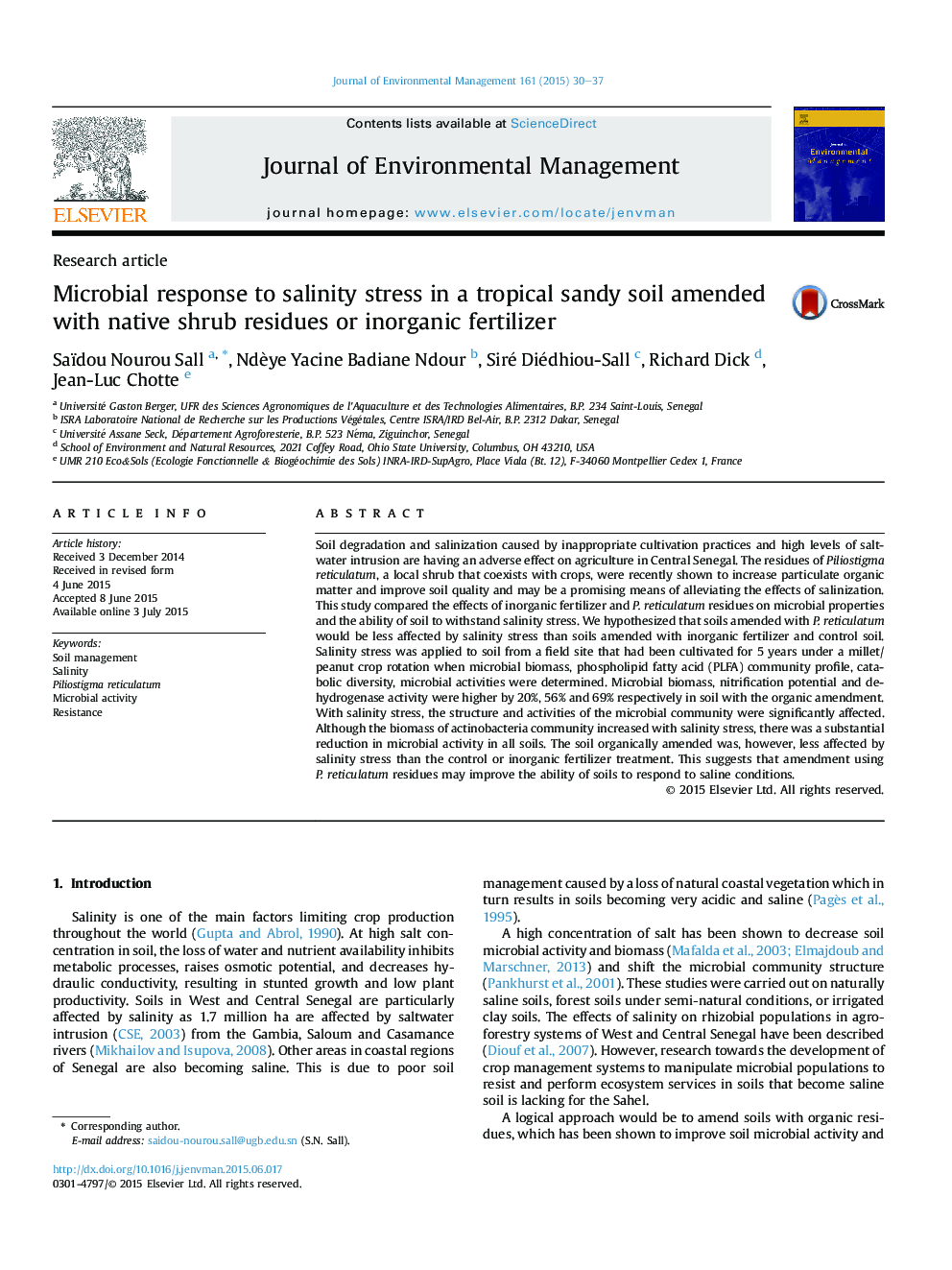| Article ID | Journal | Published Year | Pages | File Type |
|---|---|---|---|---|
| 7481500 | Journal of Environmental Management | 2015 | 8 Pages |
Abstract
Soil degradation and salinization caused by inappropriate cultivation practices and high levels of saltwater intrusion are having an adverse effect on agriculture in Central Senegal. The residues of Piliostigma reticulatum, a local shrub that coexists with crops, were recently shown to increase particulate organic matter and improve soil quality and may be a promising means of alleviating the effects of salinization. This study compared the effects of inorganic fertilizer and P. reticulatum residues on microbial properties and the ability of soil to withstand salinity stress. We hypothesized that soils amended with P. reticulatum would be less affected by salinity stress than soils amended with inorganic fertilizer and control soil. Salinity stress was applied to soil from a field site that had been cultivated for 5 years under a millet/peanut crop rotation when microbial biomass, phospholipid fatty acid (PLFA) community profile, catabolic diversity, microbial activities were determined. Microbial biomass, nitrification potential and dehydrogenase activity were higher by 20%, 56% and 69% respectively in soil with the organic amendment. With salinity stress, the structure and activities of the microbial community were significantly affected. Although the biomass of actinobacteria community increased with salinity stress, there was a substantial reduction in microbial activity in all soils. The soil organically amended was, however, less affected by salinity stress than the control or inorganic fertilizer treatment. This suggests that amendment using P. reticulatum residues may improve the ability of soils to respond to saline conditions.
Related Topics
Physical Sciences and Engineering
Energy
Renewable Energy, Sustainability and the Environment
Authors
Saïdou Nourou Sall, Ndèye Yacine Badiane Ndour, Siré Diédhiou-Sall, Richard Dick, Jean-Luc Chotte,
